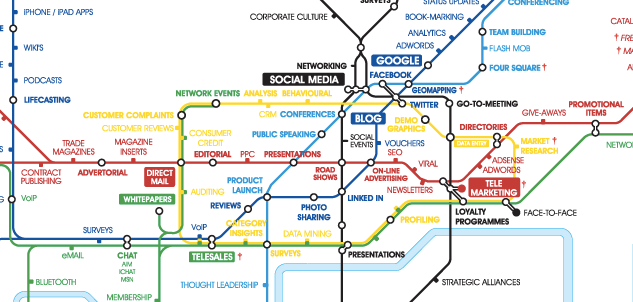In the Cannes Creative Effectiveness Awards, the shortlisted companies for the effectiveness awards used more channels than the other entries. Data from the World Advertising Research Centre (WARC) about the awards states that the shortlisted entries used on average 9.2 channels in 2013 compared with 7.8 channels by all entries. It is interesting that by implementing a more integrated and holistic approach, campaigns appear more effective.
In a survey of 46 Global Marketers conducted by Flock Associates, 70% of surveyed firms said they would get a 10% greater return on their marketing investment if their campaigns were better integrated. 31% said they would get a 20% greater return on their marketing investment if their plans were better integrated.
Evidently companies are aware of the potential benefits that integrated marketing could bring… so why are more companies not integrating their resources?
According to research by ISBA (Incorporated Society British Advertisers), achieving marketing integration can be very difficult when the average client has seven different agencies and one in ten agencies have eleven or more agencies. Many multinational FMCG companies have more than thirty global agencies and hundreds of local agencies! This increasingly complex marketing services ecosystem is even more complex for some clients who have separate media auditors, pitch consultants, relationship consultants etc. Due to the large numbers of different people involved in one marketing campaign, Structuring Marketing Communications Resources (SMCR) question whether client time is increasingly spent on managing problems between people rather than on marketing management. It is clear that a lack of integration is a problem that many companies face as SMCR state that one third of clients believe their agencies do not collaborate with one another and only half of clients believe that their structure enables their agencies to work together without client control.
A lack of integration is obviously a concern for many companies as SMCR state that in a survey only one quarter of the respondent (UK clients) are satisfied with their present structure and co-ordination and only half of clients are satisfied with the effectiveness and efficiency of their marketing communications. Nearly all (96%) clients satisfied with their structure and co-ordination are satisfied with the effectiveness and efficiency of their marketing communications. This proves that in order to achieve effectiveness and efficiency within marketing communications, integration of agencies, auditors and consultants is key.
So in summary, the research says that marketing integration is very beneficial, but hard to achieve. If you would like your own research to benchmark your company and find solutions to any issues you may find, do not hesitate to contact us here.
Comment Policy
Thanks for visiting the Flock Blogging page, where we welcome your comments. Since this is a moderated blog, all comments will be reviewed prior to posting. As a result, there will be a delay in the posting of comments and not all comments will be posted. Comments may also be removed after they are posted. Thank you for your understanding.




